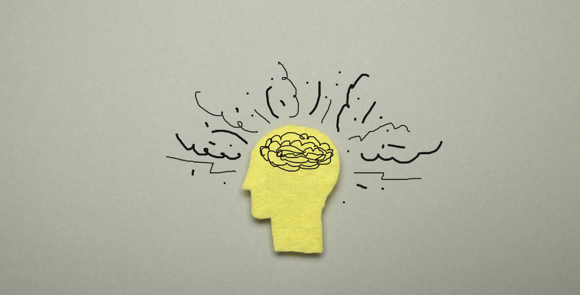 No single human in the workforce hasn't experienced some anxiety at work. The mere thought of the deadline day drawing closer makes you look over your shoulder, especially when you are a little behind.
No single human in the workforce hasn't experienced some anxiety at work. The mere thought of the deadline day drawing closer makes you look over your shoulder, especially when you are a little behind.
Being anxious about work is natural; who doesn't feel stressed at work? But when it starts to feel constant and overwhelming and gets in the way of doing your job, managing your personal life, or affecting your mental acuity, it is most likely time to take action. You're more than likely dealing with some degree of workplace anxiety.
Workplace anxiety usually induces an intense reaction that is disproportionate to the situation, often resulting in exhaustion, fatigue, and muscle tension that affects both the mind and body.
This article will discuss workplace anxiety, its signs, causes, effects, and how to manage it.
What is Workplace Anxiety
Anxiety that revolves around the workplace is called workplace anxiety or work stress. It is persistent anxiety borne out of the worries, fears, or illness, over the circumstances in the workplace, including dealing with colleagues and superiors, harassment, and doubts over one's ability.
You don't need to be at the workplace to experience workplace anxiety. If the thought of work creates a pit in your stomach or your mood changes once Sunday evening draws closer, you're dealing with workplace anxiety. So, even in the prevalent era of remote working, workplace anxiety still exists.
Workplace anxiety has a detrimental effect on both the career and the individual. About 40% of America's employees experience persistent stress and anxiety daily. Worse, the consequences of job stress on performance, relationships, and work quality are significant. Workplace anxiety could impact major career decisions by becoming the foundation for such decisions.
The Signs and Symptoms of Workplace Anxiety
Whether it is an anxiety disorder or workplace anxiety, consistent symptoms are recognizable, even though the specifics may vary from person to person. These symptoms all affect a person's productivity, quality of work, and relationship with coworkers and superiors and may cause them to quit their jobs or change careers.
Below are some of the signs and symptoms of workplace anxiety include;
- - Irrational worry
- - Tiredness and fatigue
- - Uncontrollable shaking or trembling
- - Faster heartbeat
- - Inability to concentrate or meet deadlines
- - Disproportionate reaction to workplace situations
- - Inability to relax
- - Prolonged hours away from work
- - Insomnia
- - Panic attacks
The Causes of Workplace Anxiety
There are many causes of anxiety in the workplace, as it is not uncommon to feel overwhelmed about work. Major events like making vital presentations, critical workplace decisions, performance reviews, or interpersonal conflict at work can produce a reaction of dread, fear, and anxiety.
Below are some of the causes of workplace anxiety
- - Workplace harassment

- - Drop in performance
- - Loss of engagement
- - High workload
- - Long working hours
- - Difficult superiors
- - Poor job productivity
- - Lack of job security
- - Difficult working conditions
- - Tight deadlines
Anxiety happens to even the most well-adjusted persons because of a tiny, almond-shaped bundle of brain matter called the amygdala. The amygdala is responsible for triggering the fight or flight response of the body. When compromised, the fight or flight response becomes easily switched on or, worse, difficult to switch off, resulting in prolonged anxiety or anxiety disorder. The amygdala is commonly associated with other conditions like autism, depression, developmental delay, PTSD, and dementia.
The Effects of Workplace Anxiety
With life throwing curve balls now and then, including in the workplace and people's personal lives, anxiety and stress have become natural expectations. However, when it is persistent, irrational, excessive, and interferes with an individual's everyday functioning, it is often an indication of an anxiety disorder.
Employees struggling with anxiety will see a decline in their productivity as the quality of their work depreciates, they miss deadlines, and they make costly mistakes that affect the company. This subsequently affects promotion opportunities and career goals or is interpreted as a lack of interest or willingness to do the job, eventually leading to the sack.
Prolonged anxiety forces employees to become withdrawn or irritable making it difficult for their colleagues to work with them. Eventually, this negatively impacts the company's culture and team morale.
Work anxiety eventually affects the personal life of employees. 79% of male employees report that workplace stress affects their personal relationships with their spouses, while 61% of female employees attest to this phenomenon.
There is also a financial implication of workplace anxiety resulting from its physical effect on employees. Prolonged stress causes fatigue and mental illness, forcing employees to take time away from work. Days lost as a result can heavily impact the company's bottom line.
Anxiety can result in struggling employees feeling inadequate to carry out their duties. They may make drastic decisions driven by fear, like quitting their job or completely changing career paths.

How to Manage Workplace Anxiety
First, coping mechanisms like stress eating, excessive caffeine consumption, abuse of alcohol, or prescribed medication must stop. All they do is make you forget the question and not provide any answer. In other words, they help you avoid the problem rather than help you contain or fix it and, worse, produce harmful effects on your health and body.
Instead, try a few of these fruitful techniques listed below for a more beneficial way to deal with workplace anxiety. They are not easy fixes and require work, so it's okay to feel frustrated if you slip up.
- 1. Identify stressors or trigger
Identifying stressors is difficult as it is not as simple as picking an orange from a strawberry basket. Most of the time, it requires identifying the situation where you feel nervous or anxious throughout the day.
It could be every time there is a call for a team meeting or when you see a particular colleague, and it becomes difficult to concentrate on anything else. Writing down these situations can help your strategize ways to handle them moving forward.
- 2. Relax and Breathe
Work can overwhelm you sometimes, and with everything left to do, you can get lost in trying to push through. Don't hesitate to take a step back to hit the reset button and relax when you feel stressed. Always find time to breathe and get air in your body because it helps keep your heartbeat steady, counteracting anxiety's effect.
Taking time to relax and breathe relieves your body of tension, calms the nerve, and relieves anxiety symptoms.
- 3. Talk to Someone

Employees are not comfortable talking about stress or anxiety with their employees. There are a couple of reasons for this.
The reasons include the following:
- - The tight-lipped nature or culture in their workplace, and the stigma of being labelled weak, laughed at or not taken seriously.
- - The fear of their superior misinterpreting it as a lack of interest, an excuse to slack off, or
- - They believe it is their business and no one else.
However, finding the courage to speak to someone about the troubles at work can significantly impact how you feel. You don't necessarily need a colleague to talk to; a friend, loved one, or someone you trust can help you see things from a different perspective and discover solutions.
- 4. Go Easy on Yourself
The irrational reaction to stress can leave you feeling guilty and regretful in the aftermath of an episode. When this happens, go easy on yourself, be gentle, and embrace yourself with tenderness and care. It is essential to remind yourself that it is okay to be overwhelmed, mistakes happen and that you are doing the best you can under the circumstance.
By doing this, you provide yourself with the structure, positivity, and comfort you need to tackle your anxiety.
- 5. Get Organized
Being organized helps simplify your task and reduces the feelings of dread, fear, and anxiety that can overwhelm you. Key processes should involve breaking larger tasks into smaller easy-to-do bits and assigning a time stamp for completion.
Making the load feel smaller provides a sense of calm and confidence in completing the job with time to spare.
A productivity and collaboration app like Snapfix can help you stay organized and productive without burning out.
By getting organized, your anxiety helps you accomplish tasks quicker instead of putting them off.
Yes, you can have anxiety at work, but it doesn't mean the end of the world. You have the power, and you can regain control with these tips. If you still find it difficult, remember that feeling overwhelmed is okay. You are not alone.
Talking with healthcare professionals with expertise in mental health disorders can also provide benefits in dealing with your anxiety.
To receive all the latest Snapfix platform updates, industry news and opportunities make sure to sign up for our weekly Snapfix Newsletter here.



